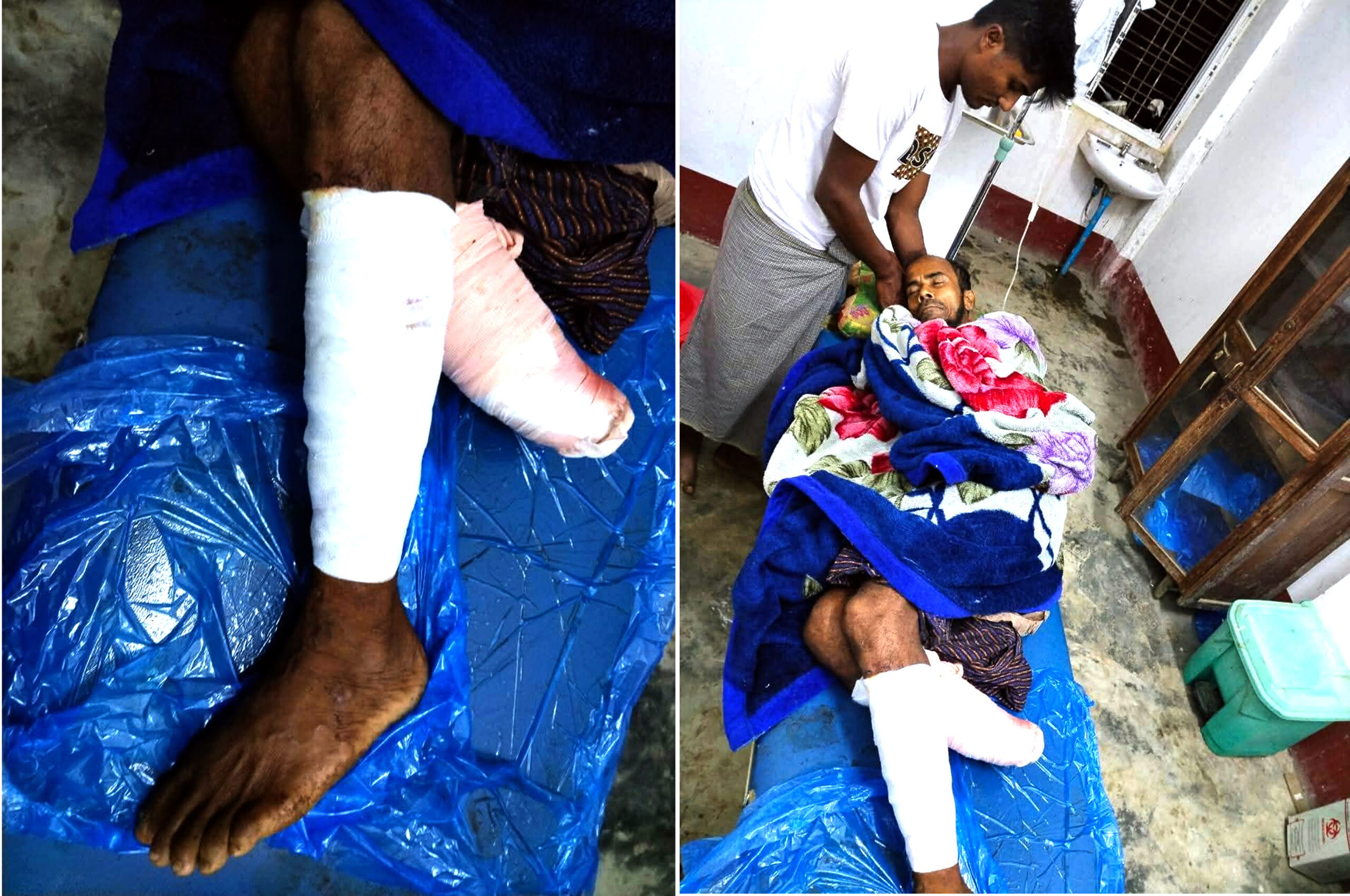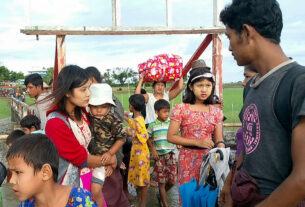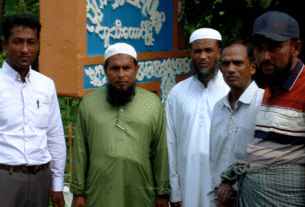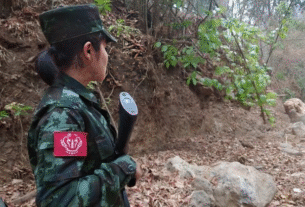Civilians in northern Rakhine State continue to face deadly risks as landmine explosions—allegedly planted by the Arakan Army (AA)—result in increasing casualties among local residents. The latest incident occurred on November 17 in Maungdaw Township, where a Muslim villager lost one of his legs after stepping on a hidden explosive device.
The victim, U Abu La Chain, age 55, from Ngan Chaung North Village, had gone to graze cattle near the eastern side of Kywel Ta Mar Village when the mine detonated around 4:00 p.m. According to residents, he unknowingly stepped on a landmine believed to have been planted by AA in the area, triggering a powerful blast.
“He stepped on the mine while tending the cattle. When we arrived, his right leg was already severed. The other leg was also injured,” a local resident told WSNews24.
The injured man was rushed to the nearest hospital for emergency medical treatment. A Pattern of Similar Incidents in Maungdaw.
The November 17 blast is part of a troubling pattern of landmine-related casualties in Maungdaw Township over recent weeks:
November 14 — U Dain Rwain (age 42), from Khun Taing Village, stepped on a landmine and died after losing a leg in the explosion.
October 24 — A young ethnic Mro man from Gyit Chaung Village lost a leg after stepping on a landmine while engaged in local livelihood activities.
These repeated incidents have heightened fear among villagers—both Muslims and non-Muslims—who depend on farmland, forest areas, and grazing grounds for their daily survival. Locals report that landmines have made routine activities extremely dangerous, with residents increasingly unsure which areas are safe.
As clashes escalate across northern Rakhine, civilians remain the most vulnerable, with landmines posing a long-term threat that extends far beyond active battlefields.




